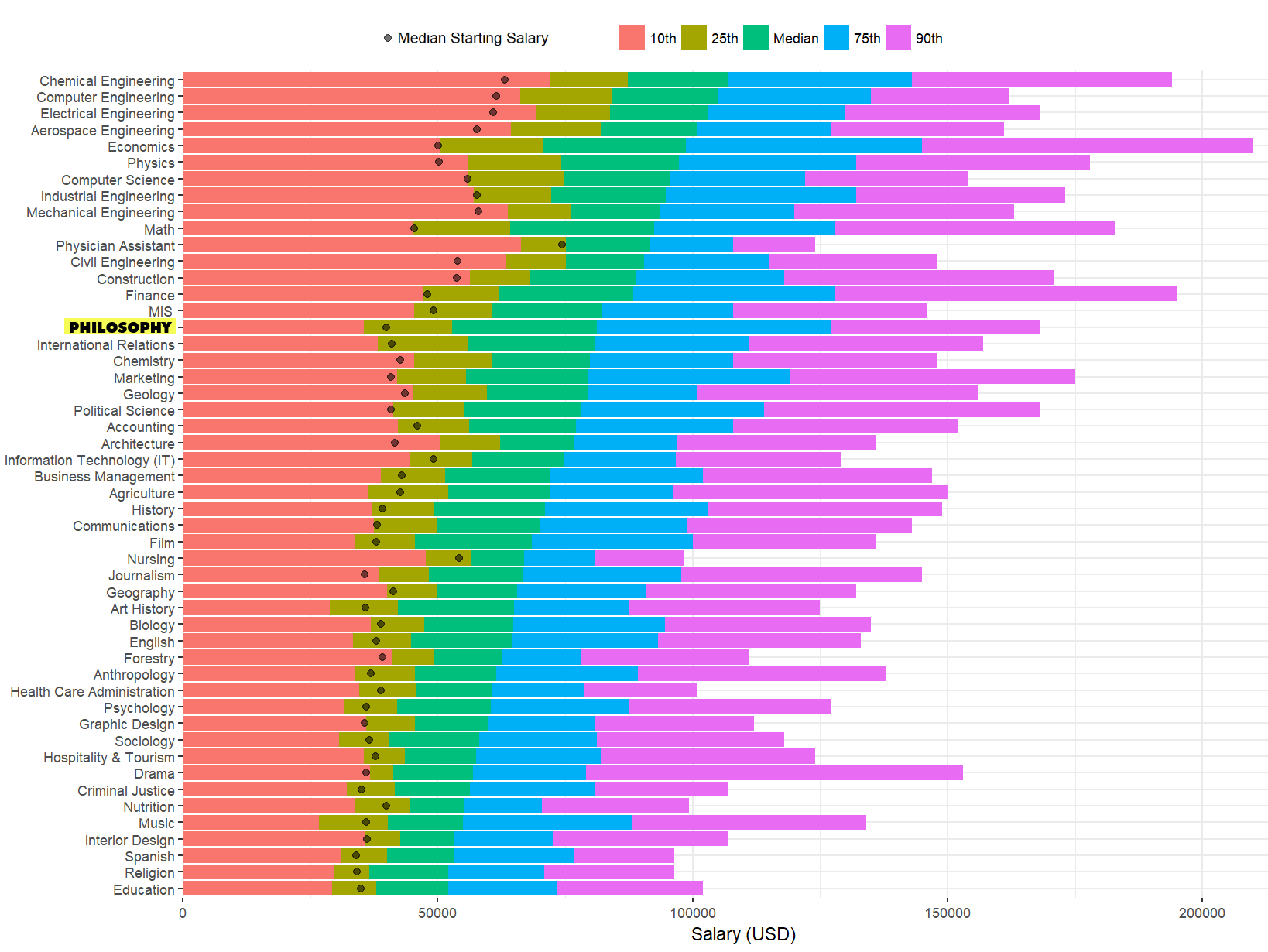Philosophy majors are smarter than others — and tend to make more money

- Philosophy majors often face ridicule and are warned of few employment prospects.
- But existing data shows that philosophy majors earn more money than many of their peers and have similar employment rates to other college grads.
- How is this possible? Philosophy majors are smarter than most of their peers, and smart people tend to make more money.
One of the more maligned undergraduate majors is philosophy: It is often listed as a degree one might regret — one which leads straight to being a barista, which should be skipped in favor of earning a welding certificate. Except, it’s a myth that philosophy majors don’t get jobs. In reality, they are smarter than most other students, and smart people tend to make more money.
The olive presses of Thales
The myth that philosophers are doomed to bankruptcy goes back to the first philosopher, Thales. One story about him tells that he was challenged to put his love of wisdom to good use and earn some money. He used his knowledge of cyclical weather patterns to buy olive presses at a low price and then sell them the next season when he knew the weather would ensure a good harvest. Aristotle concluded that Thales “demonstrated that it is easy for philosophers to become rich, if they want to; but that is not their object in life.”
Aristotle was premature in specifying that the life goal of a philosopher was not connected to earnings: Many people who study philosophy do make a fair amount of money. According to the University of Illinois, the average salary for a philosophy graduate who finds work within six months of graduation is $60,069. This puts them above economics majors and just below physics majors. Other sources report similar figures.
They also enjoy a respectable increase when one considers mid-career earnings. The median philosophy major can expect to earn a salary of more than $80,000. This is higher than that earned by business management or chemistry majors. And according to data from Payscale, those with only an undergraduate degree in philosophy rank 16th for mid-career median earnings.
The comparative starting salaries and expected incomes are shown on this beautiful graph by Reddit user u/SportsAnalyticsGuy. The data he uses is from Payscale.

For comparison, the census reports that the median income for a household in the U.S. was $70,784 in 2021. It’s also not the case that a few philosophy majors make millions while an army of thinkers begs for food. Their unemployment rate is near that of physics majors, for example.
I think, therefore I am (rich)
Philosophy majors are smarter than most people, and smart people tend to make more money. Philosophy majors enjoy some of the highest scores on graduate-level exams (for example, GRE, LSAT, GMAT, and MCAT). In addition, if you include high school students who say they plan to study philosophy, they also do extremely well on the SATs and ACTs. More generally, philosophy majors are estimated to have the third-highest average IQ scores of any college major.
A review of the data carried out by philosophy professor Thomas Metcalf shows that philosophy and religious studies graduates (the two groups are often combined in data) do better on tests after they graduate than one would expect based on how they performed on college entry exams such as the ACT. He provisionally concludes that “a philosophy education makes an average contribution to verbal reasoning and to math skills, and a large contribution to analytic-writing skills and to the GMAT-relevant skills: chiefly writing and reasoning.”
It is also important to remember that not everyone gets a job directly related to their degree. The numbers vary based on the study, but anywhere from 20% to 30% of grads find a job unrelated to their degree. Studying philosophy provides skills that are applicable in many fields. So while you might imagine a broke philosophy graduate searching for an honest man in Times Square, you should imagine somebody working in tech, law, business, social work, or the government.
Of course, it is important to remember that there is more to life than income. While people with more money tend to be happier, happiness cannot simply be bought. One of the best parts of studying philosophy is coming to understand that.





